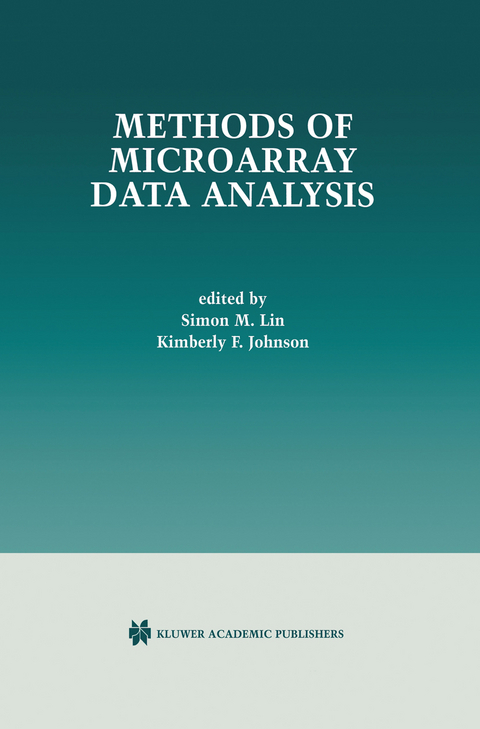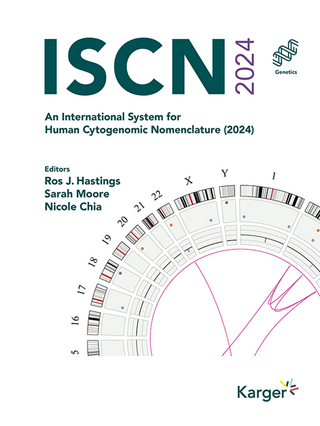
Methods of Microarray Data Analysis
Springer (Verlag)
978-0-7923-7564-7 (ISBN)
Microarray technology is a major experimental tool for functional genomic explorations, and will continue to be a major tool throughout this decade and beyond. The recent explosion of this technology threatens to overwhelm the scientific community with massive quantities of data. Because microarray data analysis is an emerging field, very few analytical models currently exist. Methods of Microarray Data Analysis is one of the first books dedicated to this exciting new field. In a single reference, readers can learn about the most up-to-date methods ranging from data normalization, feature selection and discriminative analysis to machine learning techniques.
Currently, there are no standard procedures for the design and analysis of microarray experiments. Methods of Microarray Data Analysis focuses on two well-known data sets, using a different method of analysis in each chapter. Real examples expose the strengths and weaknesses of each method for a given situation, aimed at helping readers choose appropriate protocols and utilize them for their own data set. In addition, web links are provided to the programs and tools discussed in several chapters. This book is an excellent reference not only for academic and industrial researchers, but also for core bioinformatics/genomics courses in undergraduate and graduate programs.
Simon M. Lin is Manager of Duke Bioinformatics Shared Resource, Duke University Medical Center. Kimberly F. Johnson is Director of Duke Cancer Center Information Systems and Director of Duke Bioinformatics Shared Resource, Duke University Medical Center.
Reviews and Tutorials.- Data Mining and Machine Learning Methods for Microarray Analysis.- Evolutionary Computation in Microarray Data Analysis.- Best Presentation — CAMDA ’00.- Using Non-Parametric Methods in the Context of Multiple Testing to Determine Differentially Expressed Genes.- Quality Analysis and Data Normalization of Spotted Arrays.- Iterative Linear Regresssion by Sector.- Feature Selection, Dimension Reduction, and Discriminative Analysis.- A Method to Improve Detection of Disease Using Selectively Expressed Genes in Microarray Data.- Computational Analysis of Leukemia Microarray Expression Data Using the GA/KNN Method.- Classical Statistical Approaches to Molecular Classification of Cancer from Gene Expression Profiling.- Classification of Acute Leukemia Based on DNA Microarray Gene Expressions Using Partial Least Squares.- Applying Classification Separability Analysis to Microarray Data.- How Many Genes Are Needed for a Discriminant Microarray Data Analysis.- Machine Learning Techniques.- Comparing Symbolic and Subsymbolic Machine Learning Approaches to Classification of Cancer and Gene Identification.- Applying Machine Learning Techniques to Analysis of Gene Expression Data: Cancer Diagnosis.
| Erscheint lt. Verlag | 30.11.2001 |
|---|---|
| Zusatzinfo | XIV, 189 p. |
| Verlagsort | Dordrecht |
| Sprache | englisch |
| Maße | 155 x 235 mm |
| Themenwelt | Mathematik / Informatik ► Mathematik |
| Studium ► 2. Studienabschnitt (Klinik) ► Humangenetik | |
| Naturwissenschaften ► Biologie ► Biochemie | |
| Naturwissenschaften ► Biologie ► Genetik / Molekularbiologie | |
| ISBN-10 | 0-7923-7564-5 / 0792375645 |
| ISBN-13 | 978-0-7923-7564-7 / 9780792375647 |
| Zustand | Neuware |
| Informationen gemäß Produktsicherheitsverordnung (GPSR) | |
| Haben Sie eine Frage zum Produkt? |
aus dem Bereich


